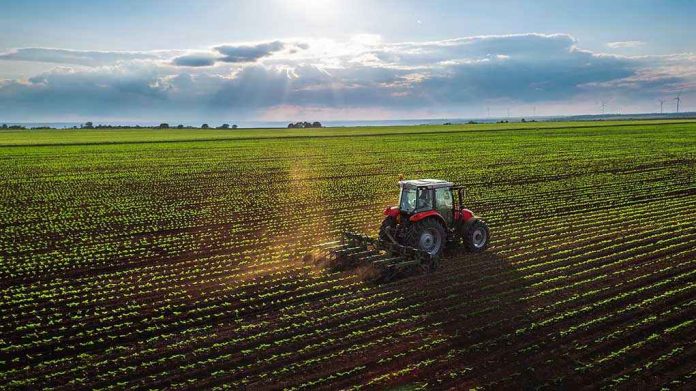
A surge in farm bankruptcies threatens the backbone of American agriculture, igniting a call to action for conservative leaders.
Story Overview
- Farm bankruptcies have surged by 55% since 2023, particularly affecting Arkansas.
- Senator Tom Cotton is under pressure to address the crisis, facing direct political challenge.
- Calls for intervention focus on high input costs, low commodity prices, and lack of a new Farm Bill.
- Farmers are mobilizing for reform against agribusiness monopolies and policy gridlock.
Farm Bankruptcies Surge in the U.S.
Farm bankruptcies in the United States have increased dramatically, with a notable 55% rise since 2023. This surge is most acute in Arkansas, a state heavily dependent on agriculture.
The rising financial distress among farmers is attributed to a combination of persistent low commodity prices, soaring input costs, and a failure to pass a new Farm Bill. These factors have left many farmers without adequate support mechanisms, pushing them to the brink of financial ruin.
The current crisis echoes past agricultural downturns but is amplified by ongoing trade disruptions and market volatility. The agricultural sector, a cornerstone of the American economy, faces unprecedented challenges that demand immediate federal intervention.
Political Pressure on Senator Tom Cotton
Senator Tom Cotton finds himself at the center of this crisis, facing criticism for perceived inaction. Hallie Shoffner, a farmer who was forced to shutter her family farm, has emerged as a vocal critic and is now running against Cotton for his Senate seat. Shoffner, along with other agricultural stakeholders, is calling for structural reform, highlighting the inadequacy of past bailouts and the destructive role of agricultural monopolies in squeezing farmer margins.
Farmers are organizing meetings and advocacy efforts to draw attention to their plight, and a significant meeting was held in Brookland, Arkansas, on September 2, 2025. This event marked a flashpoint in public awareness, amplifying calls for federal action.
Demands for Structural Reform
Farmers and their advocates are demanding more than temporary relief; they seek systemic changes to address the root causes of the crisis. Many blame the consolidation of agribusiness power for limiting competition and driving down prices. There are growing calls for anti-trust action and a comprehensive federal response, including the passage of a new Farm Bill that reflects current economic realities.
The situation highlights the broader implications for rural economies, with potential risks of economic decline and depopulation if the crisis continues unabated. The grassroots mobilization of farmers indicates a rising political force that could influence upcoming elections and shape future agricultural policy.
Sources:
Talk Business & Politics: Hallie Shoffner Talks Farm Crisis in Her Bid to Unseat Sen. Tom Cotton
AgWeb: Outraged Farmers Blame Ag Monopolies; Catastrophic Collapse Looms





